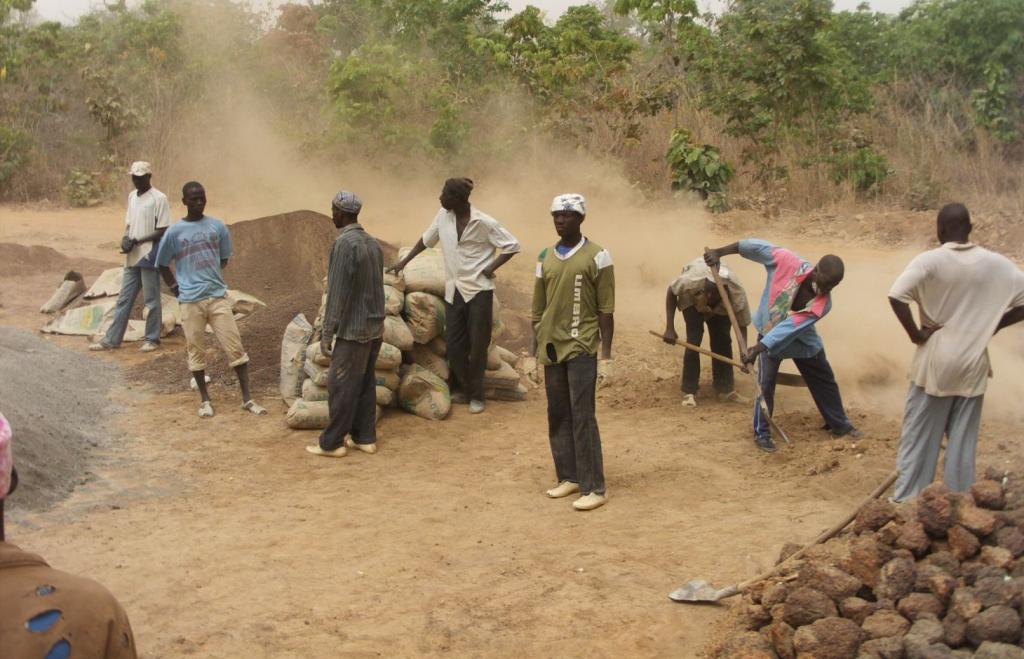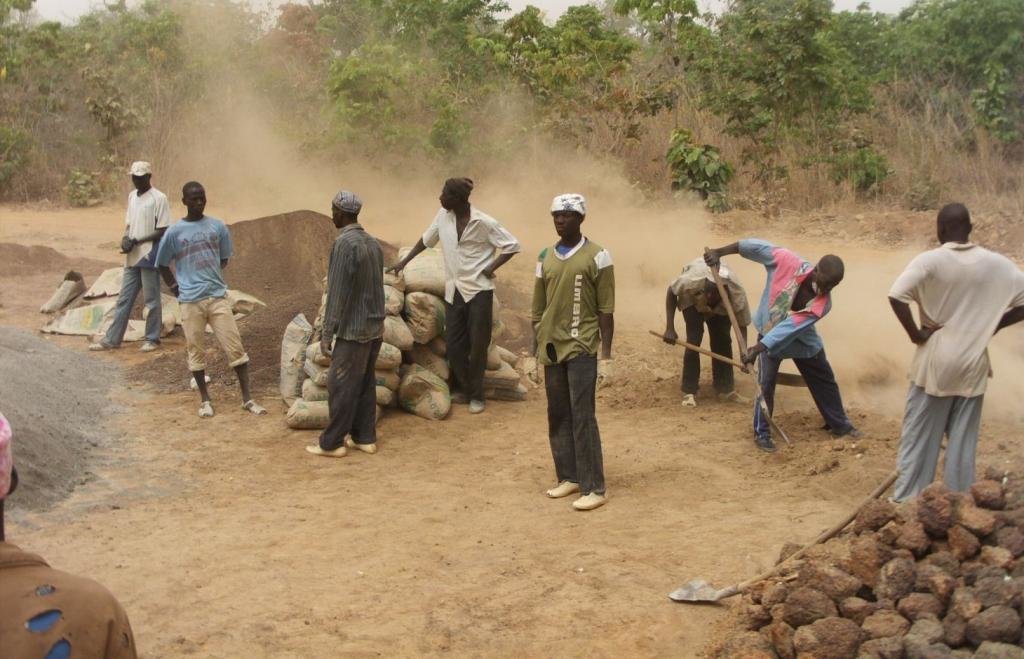Public audits as a civil oversight mechanism for project implementation [Mali]
- Creación:
- Actualización:
- Compilador: Dieter Nill
- Editor: –
- Revisor: Laura Ebneter
Audits publics comme moyen de contrôle citoyen sur la mise en œuvre des projets
approaches_2505 - Mali
Visualizar secciones
Expandir todo Colapsar todos1. Información general
1.2 Detalles de contacto de las personas de referencia e instituciones involucradas en la evaluación y la documentación del Enfoque
Especialista MST:
Tamini Jacques
jacques.tamini@helvetas.org
HELVETAS - Swiss Intercooperation
Mali
Especialista MST:
Doumbia Moussa
mtdoumbia@yahoo.fr
Association for the Development and Protection of the Environment (ADEPE Mali)
Mali
Nombre de la(s) institución(es) que facilitaron la documentación/ evaluación del Enfoque si fuera relevante)
Deutsche Gesellschaft für Internationale Zusammenarbeit (GIZ) GmbH (GIZ) - AlemaniaNombre de la(s) institución(es) que facilitaron la documentación/ evaluación del Enfoque si fuera relevante)
HELVETAS (Swiss Intercooperation)1.3 Condiciones referidas al uso de datos documentados mediante WOCAT
¿Cuándo se compilaron los datos (en el campo)?
01/07/2012
El compilador y la/s persona(s) de referencia claves aceptan las condiciones acerca del uso de los datos documentados mediante WOCAT :
Sí
2. Descripción del Enfoque MST
2.1 Breve descripción del Enfoque
Periodic public discussion meetings where elected members of the commune, local organisation managers and the community can publically discuss the implementation and management of a project.
2.2 Descripción detallada del Enfoque MST
Descripción detallada del Enfoque MST:
The objective of the practice is to improve local governance relating to investment projects. It helps to foster trust between elected representatives and the public, to improve public participation in commune initiatives and to facilitate the mobilisation of local resources.
Public audits are periodic public discussion meetings where elected members of the commune, local organisation managers and the community can publically discuss the implementation and management of a project to iron out problem areas and find home-grown solutions. The requirement to conduct these audits is laid down in the funding agreement signed by the local authority, socio-professional organisations (SPO) and funding partner.
Currently being undertaken as part of infrastructure projects, the audits occur in three stages: 1) The public hearing for the funding agreement comprises a presentation in the village benefiting from the project and mutual commitments laid down in the funding Agreement between the commune, the village (through the SPO), and the funding partner. It is organised by the commune and formalised through a public signing ceremony in the village. 2) The public review constitutes an intermediate evaluation stage occurring during the investment implementation phase, which provides the opportunity to take stock of the process (How have the tender processes gone? What is the status of the project’s financial execution? Are all parties delivering on the commitments laid down in the funding agreement?). 3) The end-of-project audit is a meeting that brings the implementation phase to a close and provides an opportunity to communicate and discuss the final accounts, lessons learned and measures to take to ensure the project continues.
The local authority is responsible for the logistical organisation of the different sessions. The sessions take place in the village benefiting from the project. A site visit is arranged for the end of each session.
SPO managers ensure the mobilisation of their members at the village level. The commune sets session dates, ensures the materials are prepared and provides the administrative and financial documents. The partner provides methodological support.
2.3 Fotos del Enfoque
2.5 País/ región/ lugares donde el Enfoque fue aplicado
País:
Mali
Región/ Estado/ Provincia:
Mali
Especifique más el lugar :
Bougouni, Kolondiéba, Yanfolila
2.6 Fechas de inicio y conclusión del Enfoque
Indique año del inicio:
2007
2.7 Tipo de Enfoque
- proyecto/ basado en un programa
2.8 Propósitos/ objetivos principales del Enfoque
To improve local governance relating to investment projects, helps to foster trust between elected representatives and the public, to improve public participation in commune initiatives and to facilitate the mobilisation of local resources.
The SLM Approach addressed the following problems: low representation of the community with regard to their local management of the project (social mobilisation), low public participation in the works
2.9 Condiciones que facilitan o impiden la implementación de la/s Tecnología/s aplicadas bajo el Enfoque
entorno institucional
- impiden
low representation of the community with regard to their local management of the project (social mobilisation), low public participation in the works
Treatment through the SLM Approach: periodic public discussion meetings where elected members of the commune, local organisation managers and the community can publically discuss the implementation and management of a project to iron out problem areas and find home-grown solutions.
3. Participación y roles de las partes interesadas involucradas
3.1 Partes interesadas involucradas en el Enfoque y sus roles
- usuarios locales de tierras/ comunidades locales
- especialistas MST/consejeros agrícolas
- ONG
- gobierno local
- gobierno nacional (planificadores, autoridades)
3.2 Involucramiento de los usuarios locales de tierras/ comunidades locales en las distintas fases del Enfoque
| Involucramiento de los usuarios locales de tierras/ comunidades locales | Especifique quién se involucró y describa las actividades | |
|---|---|---|
| iniciación/ motivación | pasivo | |
| planificación | interactivo | |
| implementación | interactivo | |
| monitoreo y evaluación | interactivo | improved monitoring and management of the project by the mayor and the commune council |
| Research | pasivo |
3.4 La toma de decisiones en la selección de Tecnología(s) MST
Especifique quién decidió la selección de las Tecnología/ Tecnologías a implementarse:
- principalmente usuarios de tierras con el apoyo de especialistas MST
Explique:
Decisions on the method of implementing the SLM Technology were made by mainly by land users supported by SLM specialists
4. Apoyo técnico, fortalecimiento institucional y gestión del conocimiento
4.1 Construcción de capacidades / capacitación
¿Se proporcionó la capacitación a usuarios de tierras/ otras partes interesadas?
Sí
Especifique quién fue capacitado:
- usuarios de tierras
Forma de capacitación:
- reuniones públicas
4.2 Servicio de asesoría
¿Los usuarios de tierras tienen acceso a un servicio de asesoría?
Sí
Especifique si servicio proporcionado se realizó:
- en centros permanentes
Describa/ comentarios:
Name of method used for advisory service: public meetings; Key elements: members of the commune, local organisation managers and the community can publically discuss the implementation and management of a project to iron out problem areas and find home-grown solutions
Advisory service is quite adequate to ensure the continuation of land conservation activities
4.3 Fortalecimiento institucional (desarrollo institucional)
¿Se establecieron o fortalecieron instituciones mediante el Enfoque?
- sí, mucho
Especifique el nivel o los niveles en los que se fortalecieron o establecieron las instituciones:
- local
Especifique el tipo de apoyo:
- financiero
- construcción de capacidades/ entrenamiento
4.4 Monitoreo y evaluación
¿El monitoreo y la evaluación forman parte del Enfoque?
Sí
Comentarios:
technical aspects were ad hoc monitored by project staff, land users through observations
socio-cultural aspects were ad hoc monitored by project staff, land users through observations
management of Approach aspects were ad hoc monitored by project staff, land users through observations
There were no changes in the Approach as a result of monitoring and evaluation
There were no changes in the Technology as a result of monitoring and evaluation
4.5 Investigación
¿La investigación formó parte del Enfoque?
Sí
Especifique los temas:
- sociología
- economía/ marketing
- ecología
- tecnología
5. Financiamiento y apoyo material externo
5.1 Presupuesto anual para el componente MST del Enfoque
Si no se conoce el presupuesto anual preciso, indique el rango:
- < 2,000
Comentarios (ej. fuentes principales de financiamiento/ donantes principales):
Approach costs were met by the following donors: international (Helvetas Swiss Intercooperation): 100.0%; government (APEL Programme (Support Programme for the Promotion of the Local Economy).)
5.2 Apoyo financiero/material proporcionado a los usuarios de tierras
¿Los usuarios de tierras recibieron financiamiento/ apoyo material para implementar la Tecnología/ Tecnologías? :
Sí
5.3 Subsidios para insumos específicos (incluyendo mano de obra)
Si la mano de obra de usuarios de tierras fue un insumo sustancial, ¿fue:
- voluntario?
Comentarios:
Food-for-work was an important input as well. Funds must be set aside to cover the costs of organising the sessions (paying for meals).
6. Análisis de impacto y comentarios de conclusión
6.1 Impactos del Enfoque
¿El Enfoque ayudó a los usuarios de tierras a implementar y mantener Tecnologías MST?
- No
- Sí, un poco
- Sí, moderadamente
- Sí, mucho
relevant measures to ensure the sound exploitation of the infrastructure;
¿El Enfoque empoderó a grupos en desventaja social y económica?
- No
- Sí, un poco
- Sí, moderadamente
- Sí, mucho
Did other land users / projects adopt the Approach?
- No
- Sí, un poco
- Sí, moderadamente
- Sí, mucho
The tool has been applied in the circles of Bougouni, Kolondiéba and Yanfolila. In total, more than 50 sessions (on average three sessions per project) have been organised in the 15 communes that signed funding agreements with the APEL Programme (Support Programme for the Promotion of the Local Economy).
Did the Approach lead to improved livelihoods / human well-being?
- No
- Sí, un poco
- Sí, moderadamente
- Sí, mucho
improved relations between decision-makers and the community; greater public participation in the works (contributing labour and local materials); a stronger role for community representatives with regard to their local management of the project (social mobilisation)
Did the Approach help to alleviate poverty?
- No
- Sí, un poco
- Sí, moderadamente
- Sí, mucho
6.2 Motivación principal del usuario de la tierra para implementar MST
- producción incrementada
- incremento de la renta(bilidad), proporción mejorada de costo-beneficio
- afiliación al movimiento/ proyecto/ grupo/ redes
- well-being and livelihoods improvement
6.3 Sostenibilidad de las actividades del Enfoque
¿Pueden los usuarios de tierras sostener lo que se implementó mediante el Enfoque (sin apoyo externo)?
- incierto
6.4 Fortalezas/ ventajas del Enfoque
| Fuerzas/ ventajas/ oportunidades desde la perspectiva del compilador o de otra persona de referencia clave |
|---|
|
improved relations between decision-makers and the community |
| greater public participation in the works (contributing labour and local materials) (How to sustain/ enhance this strength: It is important to ensure the requirement for public audits is included in the project’s funding agreement. Funds must be set aside to cover the costs of organising the sessions (paying for meals). ) |
| improved monitoring and management of the project by the mayor and the commune council |
| a stronger role for community representatives with regard to their local management of the project (social mobilisation) (How to sustain/ enhance this strength: Decision-makers must be made fully aware that the exercise is not pitched against them; rather, its aim is to encourage public engagement in the project.) |
| relevant measures to ensure the sound exploitation of the infrastructure. |
7. Referencias y vínculos
7.1 Métodos/ fuentes de información
- visitas de campo, encuestas de campo
- entrevistas con usuarios de tierras
7.2 Referencias a publicaciones disponibles
Título, autor, año, ISBN:
Manual of Good Practices in Small Scale Irrigation in the Sahel. Experiences from Mali. Published by GIZ in 2014.
¿Dónde se halla disponible? ¿Costo?
http://star-www.giz.de/starweb/giz/pub/servlet.starweb
Título, autor, año, ISBN:
Presentation of the APEL Programme’s experiences running public audits, March 2011
Vínculos y módulos
Expandir todo Colapsar todosVínculos
No hay vínculos
Módulos
No se hallaron módulos



